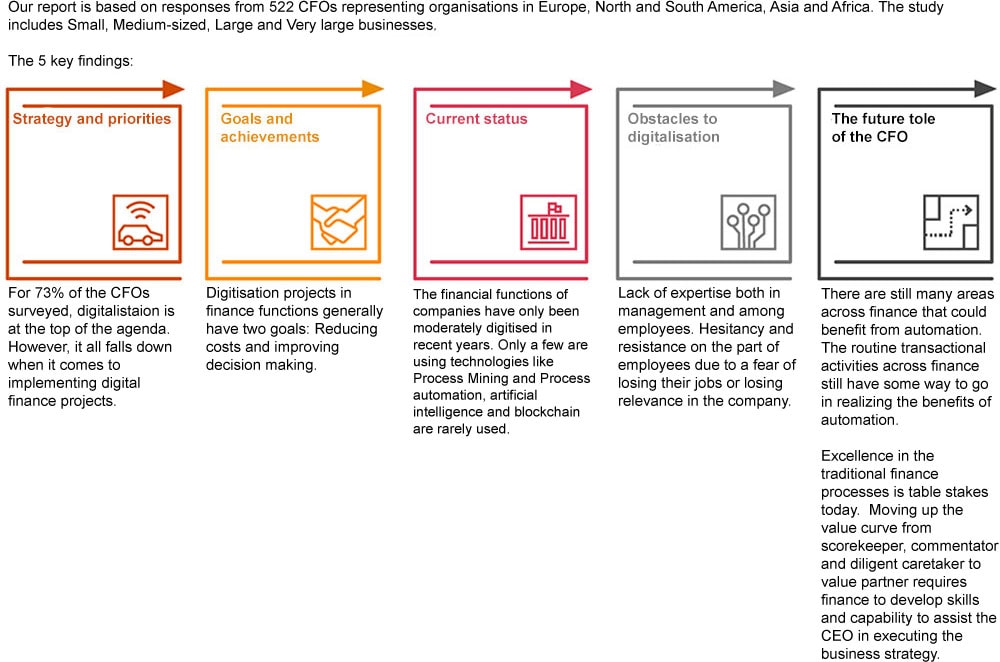CFO study Plenty of potential in the digital transformation of the finance function
The current PwC study shows that, for the majority of CFOs, the digitalisation of the finance function is of great importance. Nevertheless, the digitalisation of the finance sector is often still in its infancy in many companies. The rate of digitization seems to depend largely on the size and complexity of the organisation with top quartile turnover businesses investing significantly.
"Digitisation is high on the priority for many CFO's as they move to modernise their Finance Functions - looking at new ways of working, employing digital operating models, leveraging leading technologies in process automation, AI and predictive analytics and developing the partnering skills of the future to look beyond."
Grant Searle (Finance Transformation Integrated Solution) - FTIS Lead SAIn many companies, there is still enormous potential in the digitalisation of finance functions. And for CFOs, the transformation of their field represents a great opportunity. For example, AI-supported forecast models and predictive data analysis in the finance function can help to strengthen the strategic role of CFOs within the company.
Study overview

Digitalising finance functions: strategic opportunity for CFOs
Strategy and priorities
For 73 percent of the CFOs surveyed, digitalisation is at the top of the agenda. However, it all falls down when it comes to implementing digital finance projects and often actually introducing the company-wide digitalisation strategy into operations. The most important driver for digitalisation in many companies is the CIO/CTO, followed by the CFO and CEO.
Goals and achievements
Digitalisation projects in finance functions generally have two goals: Reducing costs and improving decision making. The CFOs interviewed in the study consider both objectives to be important, but they themselves place greater emphasis on improving decision-making.
Current status
The financial functions of companies have only been moderately digitised in recent years, but in most cases there is potential for deeper digitalisation. So far, only a few companies are using extensive technologies in their financial functions. Process automation, artificial intelligence and blockchain are rarely used. Exception: two thirds of companies already use dashboarding in management reporting.
Obstacles to digitalisation
The most important obstacle to the digitalisation of finance functions is the lack of expertise both in management and among employees. The second biggest obstacle cited by the financial managers is hesitancy and resistance on the part of employees due to a fear of losing their jobs or losing relevance in the company. However, there is no shortage of financial or technical resources.
The future role of the CFO
Two digitalisation scenarios are possible: CFOs and their finance functions could be largely automated by digitalisation if their focus in the coming years is primarily on administrative and regulatory processes. Alternatively, CFOs and finance functions can gain importance as they develop new analytical skills to help their CEO develop and execute successful business strategies.
“Companies need to focus more on the digitalisation of financial functions. A transformed finance sector provides new opportunities in data-based business management.”
Gori von Hirschhausen, Finance Consulting Leader Europe at PwC Germany




Contact us

Charlotte Kwint
Director | Finance Transformation Leader, PwC South Africa
Tel: +27 (0) 72 817 8291
















